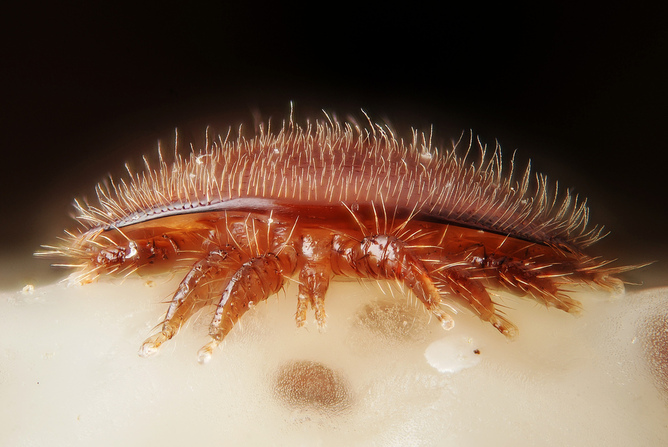But their efforts to get neonics banned failed in the U.S.(3) because bee experts knew that the problem was not pesticides, it was instead a thing that chemicals could prevent - infestation by Varroa destructor. Mites. Pests.
Those are the reason you don't see a lot of "organic" honey. There is no organic solution for varroa mites, and though the lobbyists and industry trade groups who populate the Department of Agriculture's National Organic Standards Board (NOSB) could easily exempt conventional pesticides, organic farmers (as they do with over 100 other compounds for which there is no good organic alternative) won't do it because they know they'd get clobbered by customers.(4)

It's an obvious enough problem now that even Undark magazine, run by an avowed corporate conspiracy theorist when it comes to science,(5) has noted the varroa problem we have been talking about for a decade - when everyone in corporate media was willing to read activist press releases and attack companies like they're writing an episode of Bluff City Law rather than doing journalism.
Paige Embry quotes Washington State University's Susan Cobey on the three biggest problems honeybees face: “Varroa, Varroa, Varroa.”
Science can solve this problem but academics can't do it and companies are not motivated to do it because environmentalists will turn on any new product created - like they did neonicotinoids, after those same environmental groups pushed nicotine-based treatments for decades.
And Undark will likely help them, though they have written two pro-science articles in the last month, so maybe they are trying to separate themselves from the Huffington Post audience.
This piece by Embry is solid, we all know mites are not the only problem bees face and those are addressed as well, so read it and maybe Undark will do more of this instead of the anti-science dreck they usually roll out.
NOTES:
(1) They add "pocalypse" to everything these days, as we see with nonsensical claims about bird deaths, which the New York Times helped promote - even though it was more of a marketing effort than ecology, since they spent months coming up with a Twitter hashtag and created a website to promote their work a month in advance.
(2) As if it was a new thing. For as long as bee records have been kept, so basically clerics from over 1,000 years ago, they have recorded mass, unexplained die-offs. But humans are generally afraid of random, it makes the universe big and scary, and the people most afraid of the universe are most likely to believe they can deduce a cause, so they can implement a cure.
(3) But succeeded in Europe. It must be hard being a scientist in Europe. Future generations are going to ask their grandparents in science, 'you knew this was nonsense, why didn't you say something?' and how can scientists respond? Politicians didn't listen? Not when only 10 scientists are willing to speak up.
(4) It's a $100 billion industry just in the US so clearly organic customers don't mind deception when it comes to 100 other synthetic ingredients in their organic food.
(5) They think this is investigative journalism. It is instead self-fulfilling prophecy, including being routine fops for lawyers, trade groups, and Russian-funded groups that want to undermine competitors in American science.



Comments